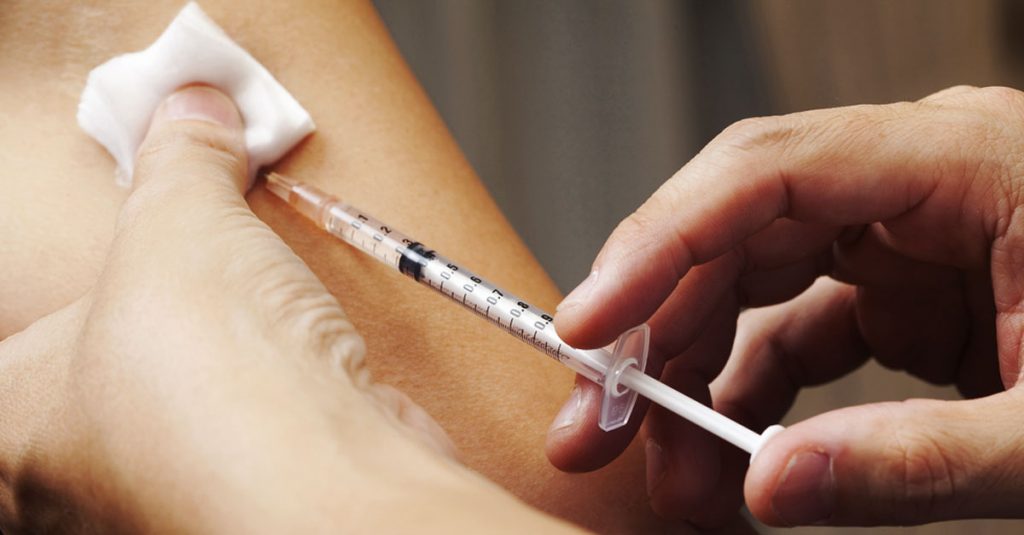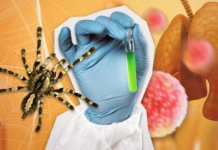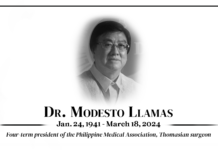
A THOMASIAN priest-scientist urged the public to avail themselves of COVID-19 vaccines once they become available and to trust the “great science” that went along in creating these vaccines.
Fr. Nicanor Austriaco, O.P., a molecular biologist and visiting professor in the Department of Biological Sciences, said despite the vaccines being developed in record time, they were still based on decades-worth of research.
“I trust the scientific process that has gone into the development and testing of these vaccines. Yes, these vaccines were developed in record time, but that is what you would expect when scientists have unlimited funding to support their experiments and no other burdens to deal with like writing and revising grant proposal after grant proposal in small incremental steps,” he wrote in a Facebook post on Jan. 10.
“Moreover, these vaccines rely on decades of research. It is not like scientists just woke up one morning at the beginning of the pandemic and started from scratch,” he added.
COVID-19 was declared a pandemic in March 2020. The first vaccine shot was given to Margaret Keenan, a 90-year-old from the United Kingdom, on Dec. 8, 2020.
Austriaco attributed the rapid development of vaccines to “decades of experiments and countless sleepless nights by tens of thousands of scientists who spent hours and hours toiling at the bench from the bedrock of the vaccines that are now being deployed around the world.”
“A lot of great science went into these vaccines and a lot of great scientists were needed to generate that great science,” he said.
Despite limited and accelerated vaccine tests and trials, Austriaco said enough proof was produced to conclude that the vaccines were effective.
“In the end, the numbers say it all. And what the numbers say is that these vaccines are safe and efficacious. Tens of thousands were tested and they developed an appropriate immune response to the SARS-CoV2 virus. Tens of thousands were tested and none got very ill or died from the vaccines,” he said.
On side effects
Austriaco said the vaccines would “absolutely” cause side effects—not because they’re ineffective, but because they’re working.
“I expect to have a sore arm for a day or so. I expect to have a fever and to feel worn out for a time. But these are signs that the vaccine is working! These are signs that the vaccine is jumpstarting my immune response so that I can make those precious antibodies that will wipe out the Covid-19 virus if I am exposed to them for real in the future,” he explained.
Austriaco said there was no need for people with allergies to panic should the vaccines induce severe allergic reactions, like what was seen in 21 of the first 1,893,360 Americans who were given the vaccines.
“Here in the Philippines, we plan to have [epinephrine auto-injectors] available everywhere we do vaccinations. So we will be ready. If I or someone else gets an allergic response, we will jab them with that,” he said.
The Dominican also assured that there was no proof that the vaccines could be causally associated with post-vaccination deaths.
“We are vaccinating millions of people around the world right now, so we should expect some to die within a few weeks after receiving the vaccine. Why? Because people die. Especially elderly people. It was just their time, whether or not they had received the vaccine or not,” he said.
Austriaco stressed that the vaccine would not cause infertility nor reprogram human DNA.
“[These claims are] unreasonable and not supported by any science… As a priest-scientist, I have to respect the evidence, whether it is the data of science or the data of divine revelation, and there simply is no evidence that mRNA (messenger RNA) vaccines will reprogram our genes,” he said.
Some of the first Covid-19 vaccines to be approved for use in other countries make use of the mRNA technology. This technology teaches cells how to make protein that triggers an immune response and produces antibodies.
‘Immoral’ vaccines
Some vaccines were made with fetal cells derived from a decades-old abortion.
Austriaco admitted that these may cause hesitancy among Christians, but said the Vatican itself had noted that it would not be immoral to avail oneself of “morally controversial” vaccines, especially if no other options are available.
“In the end, I believe that the unprecedented, and really, unexpected, successes we have witnessed in the production of these vaccines are a blessing from the Lord,” he said.
“If you had told me back during the first lockdown that we would have a handful of safe and efficacious vaccines ready to go within the first year of the pandemic, I would have shaken my head in disbelief,” he added.
The Philippines will start its mass vaccination program in February this year at the earliest.
According to vaccine czar Carlito Galvez Jr., the government aims to vaccinate 50 to 70 million Filipinos this year.
So far, only Pfizer-BioNTech has been given emergency use authorization of its Covid-19 vaccines.
Meanwhile, Janssen Pharmaceutica and Clover Pharmaceuticals have been cleared to conduct clinical trials in the country. M.L.M. Galang













